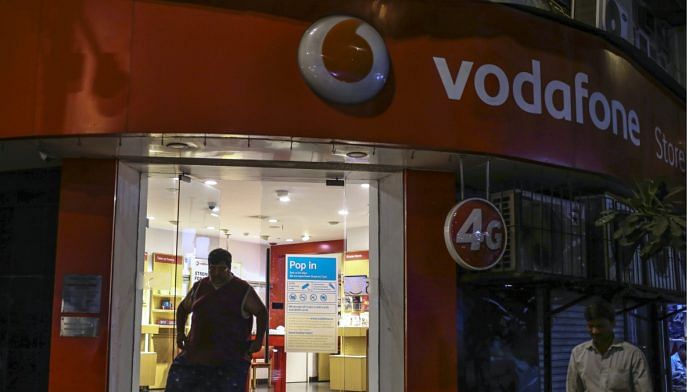New Delhi: Just a little more than a year after the government threw a lifeline to debt-laden telecom company Vodafone Idea by becoming its largest shareholder, it has seen the value of its stake jump nearly 32 percent, or Rs 5,000 crore, at the end of trading Tuesday.
The government became a shareholder in Vodafone Idea in February 2023 after it approved the company’s plans to convert about Rs 16,000 crore of interest liability it owed to the government into equity. This was in line with reforms announced under the telecom package announced in 2021.
The Board of Vodafone Idea had approved an allotment of 1,613.3 crore equity shares at an issue price of Rs 10 each to the Department of Investment and Public Asset Management. With this, the government’s stake in the company stood at about 33 percent.
Following the company’s recent successful follow-on public offer (FPO), the government stake in the company has come down to 24 percent. However, the number of shares it owns in Vodafone Idea remains the same.
At Rs 10 each, the value of the Government’s stake in the company at the time of allotment was about Rs 16,133 crore. At Tuesday’s closing price of Rs 13.20 per share, the value of the government’s stake stands at Rs 21,295 crore, 32 percent higher than what it acquired the shares for.
Although, with frequent fluctuations in the price of Vodafone Idea share, the value of the government’s stake, too, has been swinging. In the past one year, the Vodafone Idea scrip touched a low of Rs 6.54 per share in May 2023 — leaving government’s stake valued at about Rs 10,551 crore, and a high of Rs 18.42 per share on 1 January, 2024, valuing government’s stake in the company at about Rs 29,717 crore.
Also read: Why sector analysts, govt officials & even Airtel chairman are cheering on Vodafone Idea’s FPO
Challenges remain for Vodafone Idea
Amid financial woes facing the telecom sector, the Union Cabinet had in September 2021, approved a major reform package for the sector to promote healthy competition and infuse liquidity.
As part of the reforms, the telcos were offered the option of choosing a moratorium of up to four years in annual payment of dues arising out of the Supreme Court’s judgment on Adjusted Gross Revenue (AGR) as well as on dues payments for spectrum previously purchased.
Additionally, the government also gave telcos a one-time opportunity to exercise the option of paying interest for the four years on deferred spectrum installments and AGR dues by way of conversion into equity of the Net Present Value (NPV) of such interest amount.
Almost a month after the reforms were announced, Vodafone Idea opted for a four-year moratorium towards deferment of spectrum payment obligations related to spectrum auctions conducted until 2016 and AGR dues until Financial Year 2019.
Later, in January 2023, its Board also approved the conversion of the full amount of interest arising due to deferment of spectrum installments and AGR dues until Financial Year 2017 into equity.
As of February 2024, the telco had a debt of over Rs 2,01,829 crore, of which 97 percent is its dues owed to the government for AGR (about Rs 65,110 crore) and deferred spectrum payment (Rs 1,30,699 crore), according to the company’s Red Herring Prospectus (RHP) released before the FPO.
The company recently concluded a successful Rs 18,000 crore FPO, as part of plans to raise Rs 45,000 crore through a mix of equity and debt. The funds raised via the FPO — which was the biggest in the country’s history — is expected to boost Vodafone Idea Ltd’s cash flow, enabling it to invest in network expansion — especially in widening its 4G coverage and finally entering the 5G market — and reducing some of its debt. This in turn will help the company to become competitive and also slow its ongoing loss of market share.
However, as per analysts while the funding augurs well for the company’s survival, it may be a temporary fix and challenges remain for the company.
Macquarie Group, a global financial services group, in a research note this month, noted that the company will owe the government about $26 billion in Adjusted Gross Revenue due from March 2026 and deferred spectrum due from October 2025, with the government having the right to convert these dues to additional equity in the company.
“Even if we assume a 20 percent step change in tariff followed by a 10 percent per annum tariff compounding and no subscriber erosion, we estimate it would take Vi well over 20 years to organically pay back the government’s obligations; i.e. in the absence of government’s write-offs, this constrained cash flow and potential dilution dynamic remain a fundamental challenge,” it said.
(Edited by Zinnia Ray Chaudhuri)
Also read: What is row over end-to-end encryption & why WhatsApp is threatening to leave India over it



